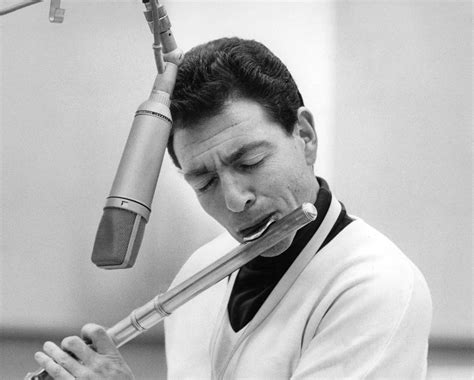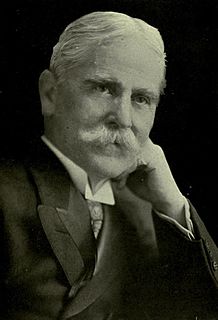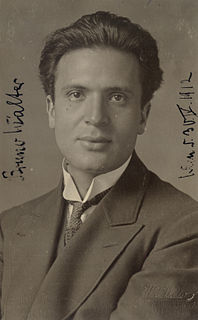A Quote by John Milton
Aristotle ... imputed this symphony of the heavens ... this music of the spheres to Pythagorus. ... But Pythagoras alone of mortals is said to have heard this harmony ... If our hearts were as pure, as chaste, as snowy as Pythagoras' was, our ears would resound and be filled with that supremely lovely music of the wheeling stars.
Related Quotes
I've approached music with the understanding that knowledge is available regarding tones and their effect upon the body. I think the father of that knowledge was the mathematician Pythagoras who lived several thousand years ago. Pythagoras was also a fine musician and he knew specifically what tones would affect which parts of the body.
We know next to nothing with any certainty about Pythagoras, except that he was not really called Pythagoras. The name by which he is known to us was probably a nickname bestowed by his followers. According to one source, it meant ‘He who spoke truth like an oracle’. Rather than entrust his mathematical and philosophical ideas to paper, Pythagoras is said to have expounded them before large crowds. The world’s most famous mathematician was also its first rhetorician.
FALLING STARS: Do you remember still the falling stars that like swift horses through the heavens raced and suddenly leaped across the hurdles of our wishes -- do you recall? And we did make so many! For there were countless numbers of stars: each time we looked above we were astounded by the swiftness of their daring play, while in our hearts we felt safe and secure watching these brilliant bodies disintegrate, knowing somehow we had survived their fall.
It is astonishing, how many difficulties clear up without any effort when the inner life gets straightened out. If half the time we spend trying to fix up outward things were spent in getting our hearts right, we would be delighted with the result. Strange as it may seem, harmony within our hearts depends mostly upon our getting into harmony with God.
You should rather suppose that those are involved in worthwhile duties who wish to have daily as their closest friends Zeno, Pythagoras, Democritus and all the other high priests of liberal studies, and Aristotle and Theophrastus. None of these will be too busy to see you, none of these will not send his visitor away happier and more devoted to himself, none of these will allow anyone to depart empty-handed. They are at home to all mortals by night and by day.
If all the skies were sunshine Our faces would be fain To feel once more upon them The cooling splash of rain. If all the world were music, Our hearts would often long For one sweet strain of silence, To break the endless song If life were always merry, Our souls would seek relief, And rest from weary laughter In the quiet arms of grief.
I have increasingly become conversant with Pythagoras' and Goethe's idea of a primordial music, not perceptible to the sensuous ear, but sounding and soaring throughout the cosmos. Tracing it to such exalted origins, I begin to understand more deeply the essence of our art and its elemental power over the human soul. Man, being a creature of Nature and subject to the cosmic influences that inform all earthly beings, must needs have been under the sway of that music from his earliest days; his organism reverberated with its vibrations and received it's rhythmic impulses.
A famous violinist once said. Music transcends words. By exchanging notes, you get to know one another, to understand one another. As if your souls were connected and your hearts were overlapping. It's a conversation through instruments. A miracle that creates harmony. In that moment, music transcends words.
The point of recapitulation in the first movement of Beethoven's Ninth Symphony unleashes one of the most horrifyingly violent episodes in the history of music....The point is not to hold up Beethoven as exceptionally monstrous. The Ninth Symphony is probably our most compelling articulation in music of the contradictory impulses that have organized patriarchal culture since the Enlightenment. Moreover, within the parameters of his own musical compositions, he may be heard as enacting a critique of narrative obligations that is...devestating.





































